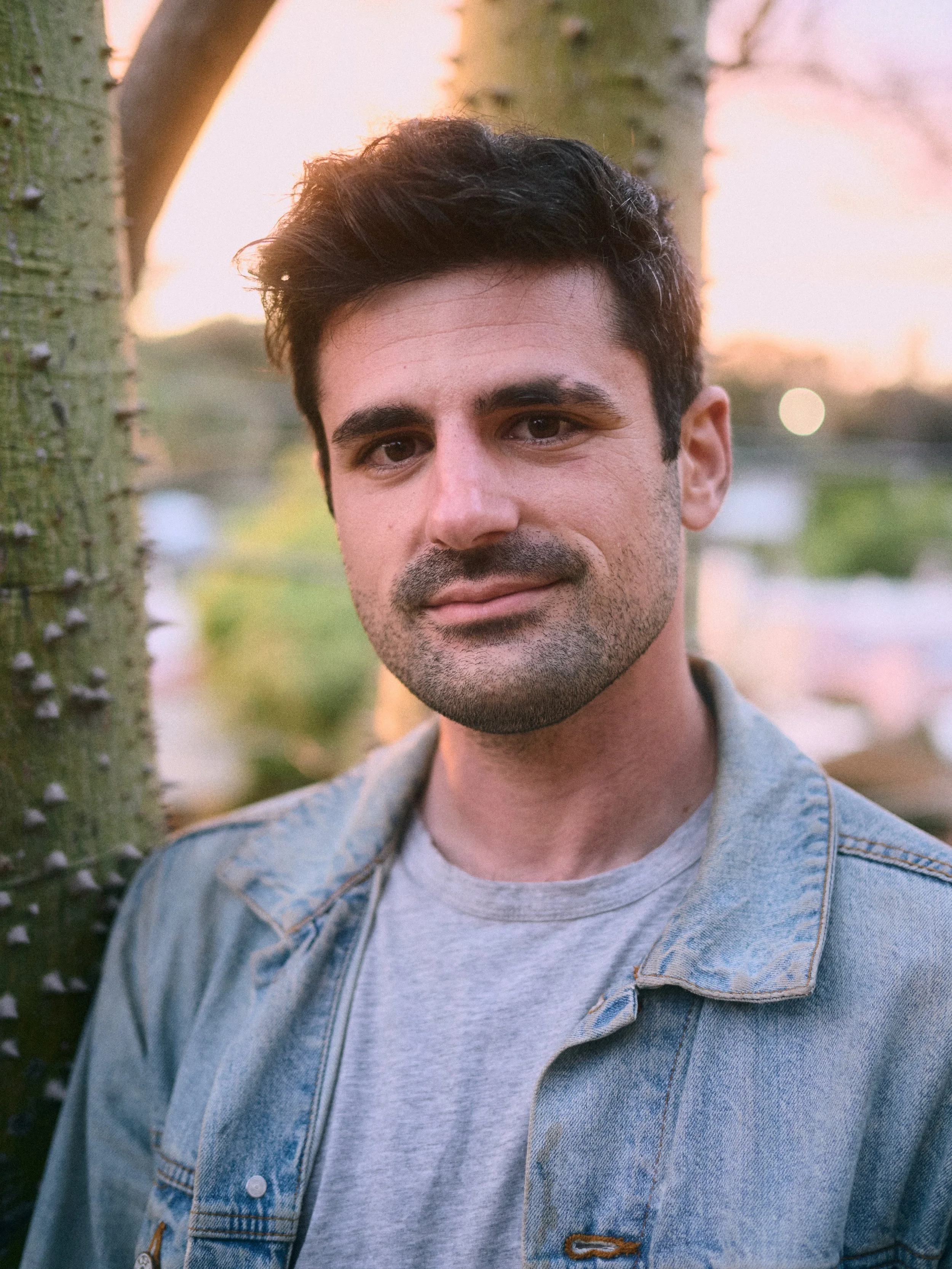STATEMENT on Lifetime’s Creation and Airing of Devil on Campus: The Larry Ray Story
JULY 1, 2024
In April 2019, America’s social consciousness was riveted by an unbelievable cover story published in New York Magazine’s The Cut about a middle-aged ex-convict named Larry Ray who was allowed to reside, unimpeded, in his daughter’s college dorm at Sarah Lawrence College for nearly an entire school year. As a result of Sarah Lawrence College’s failure to protect vulnerable teenagers in their care, Larry Ray was successful in abusing and trafficking several teenagers both on campus as well as various other locations across the East Coast, including a condominium in Manhattan managed by Gumley-Haft, LLC.
In November 2023, the team from Justice Law Collaborative filed suit in New York State against both Sarah Lawrence College and Gumley-Haft, LLC, the property management company responsible for the condominium in New York City where Larry Ray ultimately trafficked several of these young, innocent college students.
Last week, Lifetime broadcast a made-for-television saga Devil on Campus: The Larry Ray Story, revealing Hollywood’s interpretation of what happened on Sarah Lawrence College’s campus (original air date: June 23, 2024; planned re-air on September 26, 2024).
While Hollywood invests in these stories for cash and clicks, Justice Law Collaborative’s clients have been re-victimized and re-traumatized by the reenactments portrayed on the screen. Further, they were infrequently consulted about what actually occurred, leaving out the most important part of the story: the victim’s perspective.
Kelly Guagenty, attorney and partner at Justice Law Collaborative, shared the following about the Lifetime movie that glamourizes Ray:
“The sensationalizing of a convicted criminal for monetary gain is understandably distressing to our clients. It is unfortunate that Hollywood sees fit to elevate this heinous individual at the expense of traumatized survivors of sexual, physical, and emotional abuse. Our clients’ voices and perspectives are completely absent from Devil on Campus: The Larry Ray Story. This is a tragedy on so many levels. To date - no one has taken any responsibility or accountability for the egregious harms suffered by our clients - not Ray himself, not Sarah Lawrence College, and not Gumley-Haft LLC. Our clients continue to be failed at every turn, and this upcoming Lifetime movie adds insult to injury.”
Larry Ray’s Victims Speak Out
Those that suffered at the hands of Larry Ray too have voices…none of which Hollywood minded in the making of this film.
Daniel
"Devil on Campus" is a film produced in our supposedly enlightened era of survivor-centered true crime stories and, appropriately, the promotion for the film has featured much discussion of the emotionally traumatic nature of the experiences it depicts. Despite this, those involved with the making of "Devil on Campus" seem more interested in the sales potential of that trauma and are remarkably unconcerned with the actual victims they portray. As one of those victims, someone who was tortured, someone who was beaten with a hammer in front of my friends, it shakes my faith in humanity to think that in this day and age, the producers of this film would have no interest in consulting me about how to accurately and sensitively depict such a scene or whether, as the human source material for their product, I believe there is merit in fictionalizing it.
Larry Ray exploited us for money by selling us for sex and using us for free labor. Everyone involved in this production, from the producers to the actors to those behind the camera, are no better. Without consideration, they find no issue with exploiting other human beings for their own enrichment. Similarly, if you choose to press play on this movie, you are no better than those who were glad to pay our abuser their money to engage in sex acts with his victims--to pay for entertainment produced through exploitation. Those people who shrug and greenlight similar productions are no better than those who stood by and allowed our abuse to happen right in front of them, in their houses, on their campus, in the lobby of their building, on the streets of New York City – right before their eyes.
As someone who has been tortured, I would implore anyone reading this to not participate, to avoid being, in fact, complicit in further torture.
Felicia
I am deeply disappointed and distressed by the unauthorized retelling of my story in "Devil on Campus." This exploitation of our traumatic experiences for entertainment re-traumatizes and re-exploits us.
Billy Zane’s comments about deserving “emotional support pay” and likening our trauma to stunts in movies are particularly inappropriate and dismissive of the real suffering we endured. His reckless, ignorant remarks demonstrate his lack of understanding of our case and of Larry. Zane’s comments on susceptibility highlight his lack of education on this kind of trauma and his lack of compassion towards survivors. The fact that Zane and Rohm were paid to make this movie only adds to the outrage.
Elisabeth Rohm claims to have made this film to tell the survivors' story, yet she didn't consult any of those victimized.
Most of us have already told our story in a documentary. Claiming that this film was needed to tell our story is inappropriate, especially when it was unauthorized. If she truly had our interests at heart, she would have reached out directly. Using court transcripts and documentaries alone is not enough to capture the nuance that can only be gained from talking directly to survivors. Rohm’s decision to make this film shows reckless disregard, revealing self-interest and a desire to profit off a salacious retelling, not an interest in the survivors and the trauma we endured.
Since learning about this film, we have been re-traumatized, unable to sleep, and struggling to work. Without consulting those who lived it, the film misses major points and spreads harmful misinformation.
User reviews on IMDb exemplify the misunderstanding and false narratives that arise from such portrayals. This misinformation interferes with justice, belief in survivors, obtaining help, and recovery—leading to long-term consequences for victims and their loved ones. No means no. If the survivor doesn't want to tell the story, you just don't tell it because it is not your story to tell.
Movies are not journalism, and studios should not have rights over stories just because they make the news. Additionally, when movies claim to be based on a true story but do not faithfully convey the truth, they cause irreparable harm.
People will take this untrue version as fact, causing harm to the subjects and other victims who may be in similar situations. They will think the worst because the producers were too lazy and greedy to reach out to the actual survivors to discover the truth.
We urge filmmakers, actors, and the media to adopt ethical practices that involve and respect survivors when telling our stories. This includes consulting us, obtaining our consent, and portraying our experiences accurately. Audiences can support this by engaging with media that honors and accurately represents survivors' experiences and by speaking out against content that exploits trauma. Together, we can foster a more compassionate and responsible entertainment industry, championing stories that uplift and empower survivors.
Let’s create a culture that prioritizes empathy, respect, and genuine support for those who have survived traumatic experiences. By doing so, we not only honor the dignity of survivors but also set a standard for ethical storytelling that benefits society as a whole.
Claudia
I found the recent Lifetime movie deeply invasive, upsetting, and offensive. It misportrays private, traumatic events from my life for entertainment alone. Moving forward and healing is difficult enough without sensationalizing, re-traumatizing and opportunistic media attention. At no point was there an attempt made to contact me, let alone consult me regarding the making of this film. As a network that claims to speak from a "female perspective", I implore Lifetime to reevaluate their intentions and do better for the victims at the center of their extensive true crime programming.
For further comment or questions, contact Kelly Guagenty at: Kelly@JusticeLC.com.



